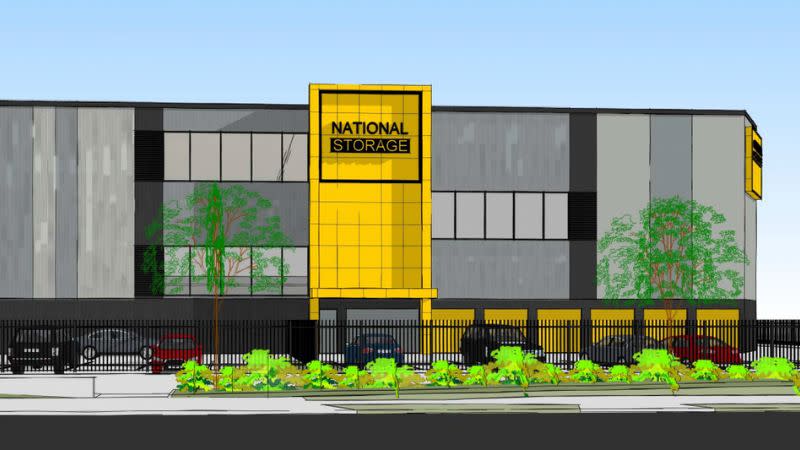National Storage Plans 900 Self-Storage Units in Salisbury

Plans have been filed for a four-storey mega self-storage complex at suburban Salisbury on Brisbane’s southside as demand for storage space across the country continues to outstrip supply.
Activity in the sector has ramped up off the back of expanding e-commerce, pandemic-induced lifestyle and work changes as well as US-based real estate giant Blackstone's move into the rising Australian asset class.
Blackstone acquired Melbourne-based Fort Knox Self Storage in 2021 and earlier the same year purchased the KeepSafe portfolio of self-storage sites in Perth.
Since then, the country’s two major self-storage players—National Storage and Abacus—have continued to bolster their portfolios to strengthen their positions.
The development proposal lodged with the Brisbane City Council is for a National Storage facility comprising 908 storage units ranging from 4.5 to 27 square metres.
It would replace an existing warehouse and showroom on the 6020sq m site at 312 Evans Road.
According to the development application, the proposal would rise slightly above the site’s 15m height limit but “achieves a built form and scale that is consistent with the envisaged character and existing surrounding context”.
“The proposal adopts a high-quality architectural style … that will integrate well with the surrounding use over the site,” a submitted planning assessment report said.
“[It] achieves a well-articulated built form through the inclusion of variations in the building form, recesses, projection and variation in materials, colours and textures.”
The DA said the opposite side of Evans Road comprised of low density residential zoned properties and a sport and recreation zone.
“Given this, a self-storage facility is ideal as the proposal provides a built form and buffer to the low-density residential zone and has limited vehicle movement to and from the site,” it said.

A state of the industry report released by the Self Storage Association of Australasia in December indicated a surge in demand was driving record performance in the sector but there was still “considerable untapped storage demand”.
It said the average facility occupancy rate was now sitting at 91 per cent.
“The state of the housing market, as well as the continued disruption from Covid and the rise in working from home, have led people to seek self-storage as they downsize, declutter, move interstate and make space for permanent home offices,” the report said.
Brisbane and Perth had been the standout performers during the 12 months to December, with revenue per available square metre per annum (RevPAM) growth of 21 per cent and 41 per cent, respectively.
“This growth is attributed to the high levels of interstate migration to these markets, underpinned by the affordability and liveability of these cities compared to more expensive southern cities,” it said.
Across the Australian and New Zealand markets there are now more than 2200 self-storage facilities—an increase of 9.5 per cent during the past two years.
The report said growth was expected to “normalise in the near term” with changes in discretionary spending and a softer housing market dampening some demand.
But going forward, it noted several factors—including continued high levels of interstate migration, the return of overseas migrants, an increasing retirement rate and increasing rates of death and divorce—were expected to drive demand.
“These strong fundamentals are set to underpin the return to stabilised growth,” it said.
Meanwhile, Abacus also has filed plans for a four-storey self-storage facility on a 5674sq m site at Morayfield, north of Brisbane.
As well, the property fund manager has moved to create a direct rival to the $2.8-billion National Storage REIT with plans to spin off its Storage King facilities into a $3-billion listed entity to be known as Abacus Storage King (ASK) REIT.
It would comprise a 127-asset portfolio, including 108 trading facilities with more than 568,000sq m of space and 19 developments.
Abacus initially acquired 25 per cent of Storage King in 2018 and two years later took full control, paying $50 million for the additional 75 per cent stake of the self-storage landlord.














